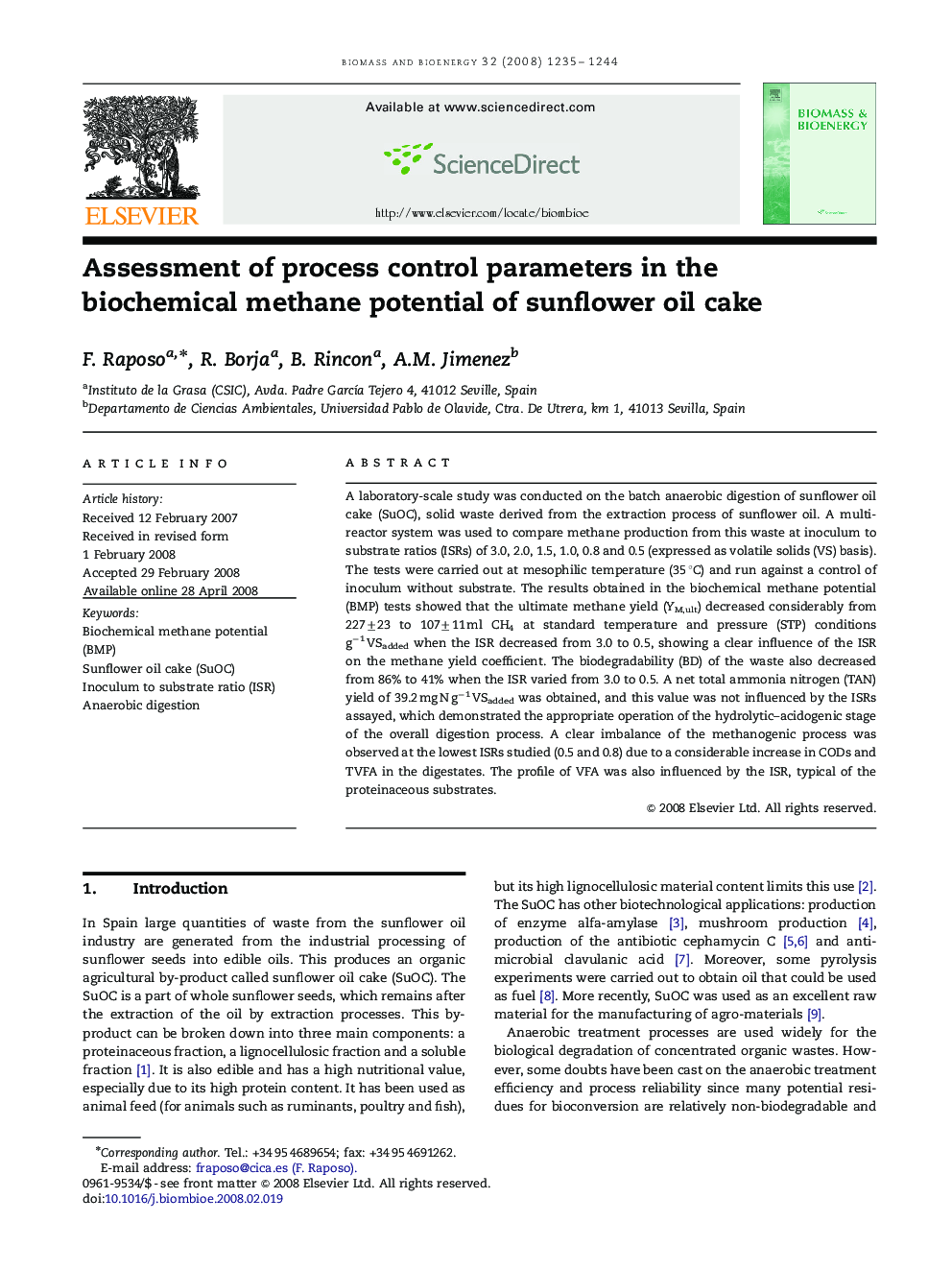| Article ID | Journal | Published Year | Pages | File Type |
|---|---|---|---|---|
| 678772 | Biomass and Bioenergy | 2008 | 10 Pages |
A laboratory-scale study was conducted on the batch anaerobic digestion of sunflower oil cake (SuOC), solid waste derived from the extraction process of sunflower oil. A multi-reactor system was used to compare methane production from this waste at inoculum to substrate ratios (ISRs) of 3.0, 2.0, 1.5, 1.0, 0.8 and 0.5 (expressed as volatile solids (VS) basis). The tests were carried out at mesophilic temperature (35 °C) and run against a control of inoculum without substrate. The results obtained in the biochemical methane potential (BMP) tests showed that the ultimate methane yield (YM,ult) decreased considerably from 227±23 to 107±11 ml CH4 at standard temperature and pressure (STP) conditions g−1 VSadded when the ISR decreased from 3.0 to 0.5, showing a clear influence of the ISR on the methane yield coefficient. The biodegradability (BD) of the waste also decreased from 86% to 41% when the ISR varied from 3.0 to 0.5. A net total ammonia nitrogen (TAN) yield of 39.2 mg N g−1 VSadded was obtained, and this value was not influenced by the ISRs assayed, which demonstrated the appropriate operation of the hydrolytic–acidogenic stage of the overall digestion process. A clear imbalance of the methanogenic process was observed at the lowest ISRs studied (0.5 and 0.8) due to a considerable increase in CODs and TVFA in the digestates. The profile of VFA was also influenced by the ISR, typical of the proteinaceous substrates.
